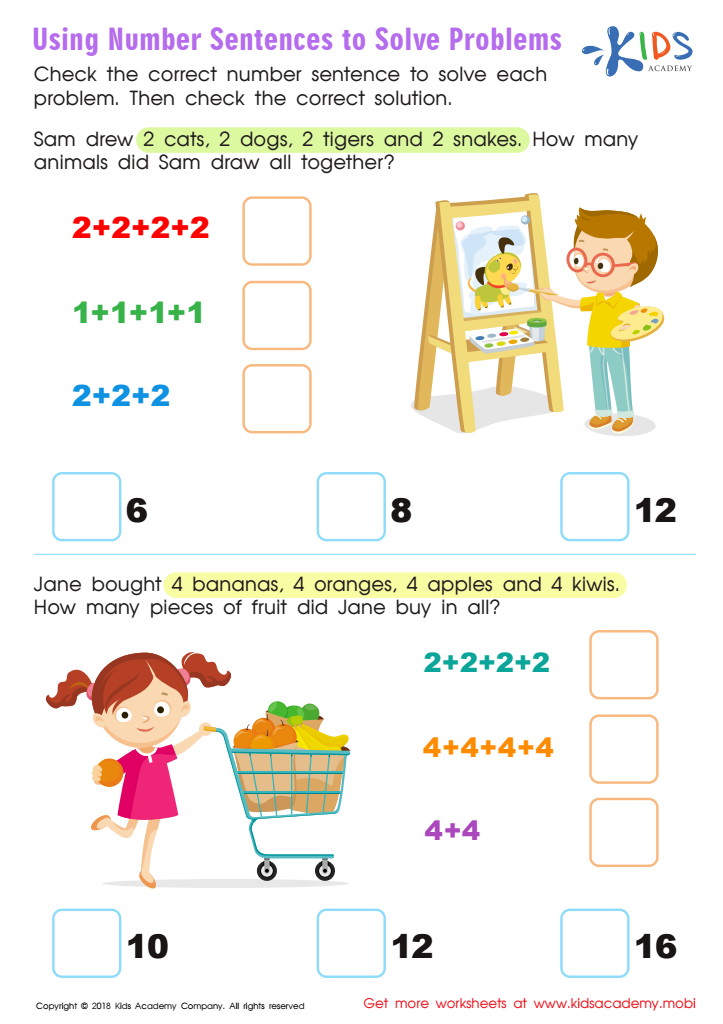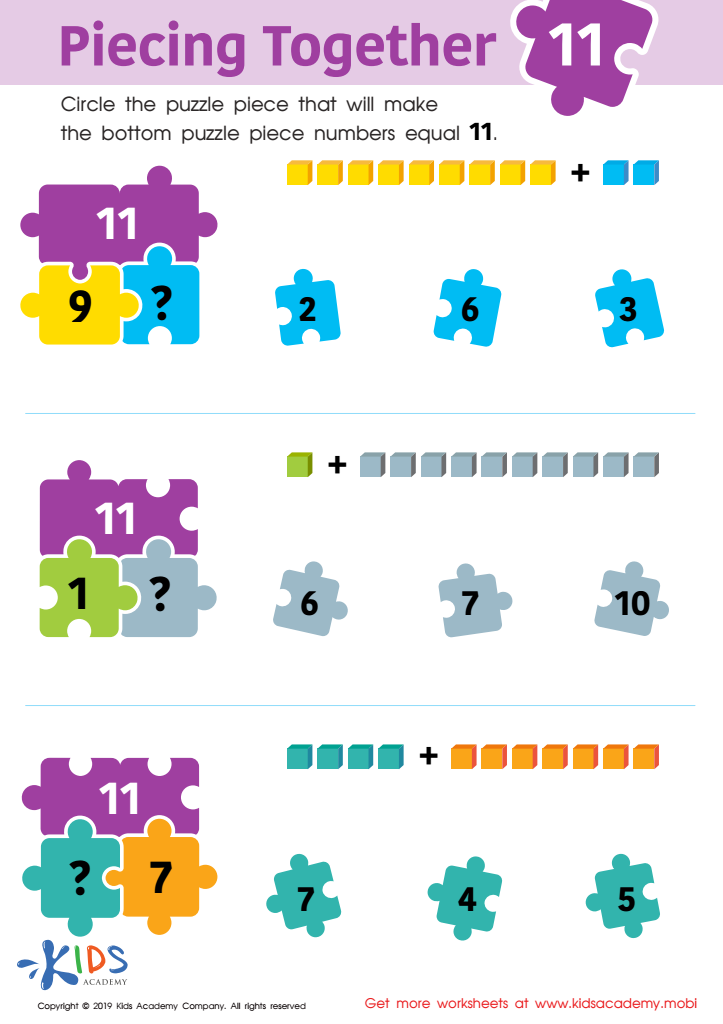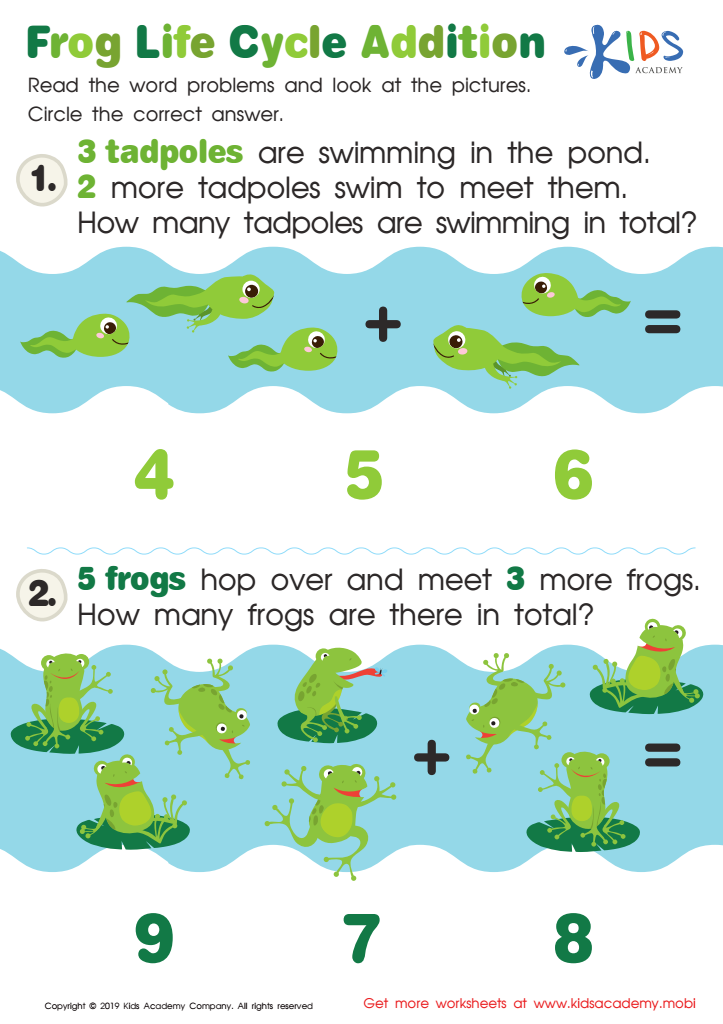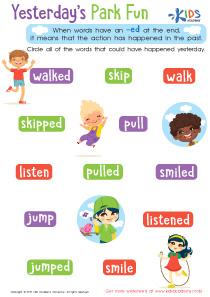Enhancing Counting Skills Easy Kindergarten Worksheets
3 filtered results
-
From - To
Enhancing Counting Skills Easy Kindergarten Worksheets are designed to make learning fun and effective for young learners. These expertly crafted worksheets help kindergarten students build a solid foundation in counting. Featuring engaging activities, colorful visuals, and interactive exercises, children can practice number recognition, sequencing, and basic arithmetic in a playful manner. Perfect for classroom use or homeschooling, our easy-to-follow worksheets accommodate various learning styles and paces, ensuring each child’s confidence and competence in counting grows. Start enhancing your child’s counting skills today with our creative and supportive resources at Kids Academy!


Using Number Sentences to Solve Problems Worksheet


Piecing Together 11 Worksheet


Frog Life Cycle Addition Worksheet
Enhancing counting skills in kindergarten is foundational for children's mathematical development and overall cognitive growth. At this formative stage, children are developing the basic building blocks for future learning, making it critical for parents and teachers to foster strong numerical skills. Counting is not merely about reciting numbers; it instills concepts of quantity, order, and numerical relationships, which are essential for understanding more complex mathematical principles later on.
Firstly, counting skills support children in grasping number sense, which includes recognizing numbers, understanding their value, and developing the ability to use numbers in everyday scenarios. This foundational skill is a precursor to addition, subtraction, and other arithmetic operations. For instance, learning to count objects helps children understand the one-to-one correspondence, an essential concept where each object is counted once and only once.
Secondly, these skills enhance problem-solving and critical thinking. When children learn to count, they start making predictions, estimating quantities, and strategizing, which are crucial skills for academic success in various subjects.
Lastly, confidence in these early skills can boost children’s self-esteem and foster a positive attitude towards learning, reducing anxiety about math as they progress to higher grades. Parents and teachers, therefore, play a critical role in creating rich, supportive environments for practicing counting, using play-based learning, engaging activities, and real-life examples that make learning enjoyable and meaningful.
 Assign to My Students
Assign to My Students




.jpg)
















